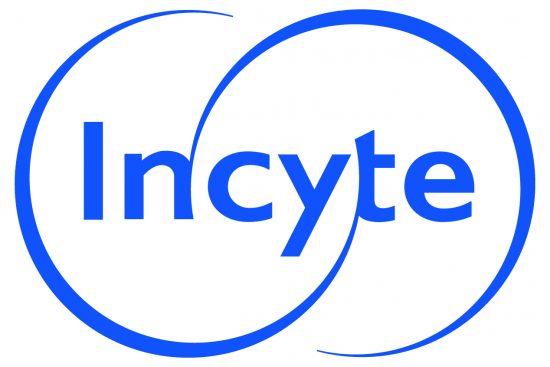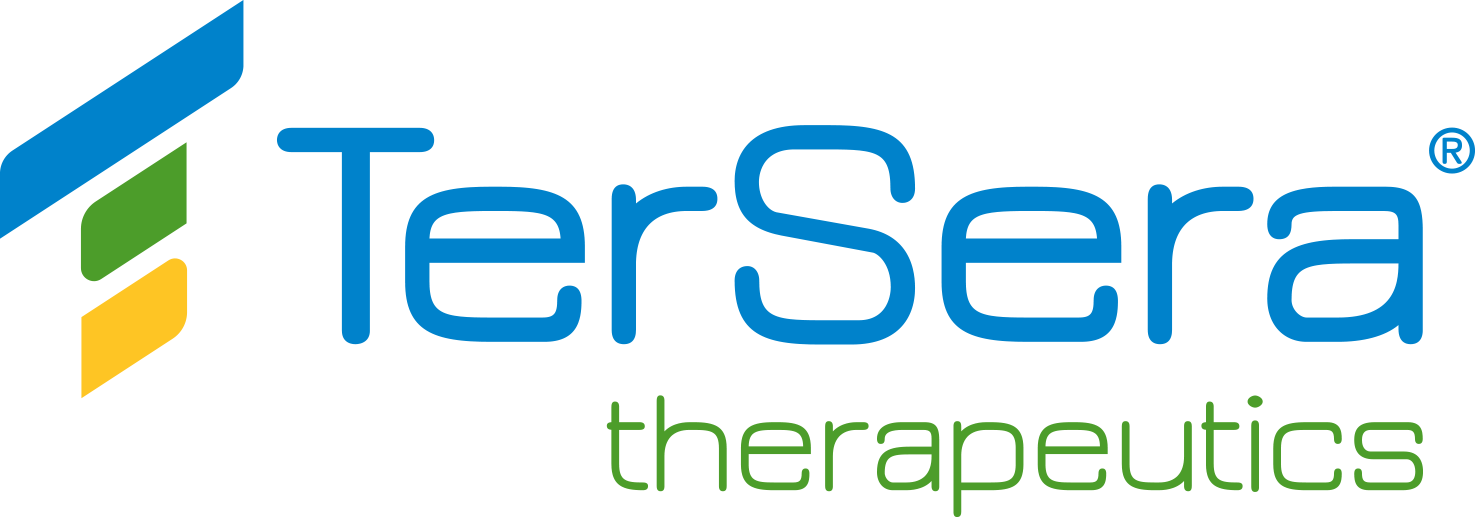PQIs
POSITIVE QUALITY INTERVENTIONS (PQIs)
NCODA’s PQIs are precise and concise peer-reviewed clinical guidance resources. By providing Quality Standards and effective practices around a specific aspect of cancer care, PQIs equip the entire multidisciplinary care team with a sophisticated yet simple-to-use resource to manage patients receiving oral or IV oncolytics.

BENEFITS OF PQIs
The treatment and management of oncology patients on oral drug therapy continues to change and evolve. This complexity means healthcare professionals need a quick resource for information about drug therapy management.
NCODA’s PQIs are that resource.
They foster better care for patients through appropriate patient identification, treatment selection, increased speed to therapy, reduced cost and hospitalization, and improved adherence techniques for the patient and their medically-integrated teams.

Optimize Drug Therapy and Patient Outcomes
Positive Quality Interventions (PQIs), one of NCODA’s Quality Standards, are designed to standardize oncology practices and support positive clinical outcomes. We invite professionals from every sector of oncology to join the PQI Committee and contribute relevant topics to this growing body of knowledge. Together, we can better serve all patients living with cancer.
PQIs BY CATEGORY
Medication
Management of Abemaciclib (Verzenio®) Associated Diarrhea
Written by: Derek Gyori, PharmD and Julianne Orr, PharmD
Advanced Breast Cancer: Appropriate Patient Identification with Abemaciclib (Verzenio®)
Written by: Jan Montgomery, PharmD, South Carolina Oncology Associates and Jacob Dygert, South University School of Pharmacy
Acalabrutinib (Calquence®) in Chronic Lymphocytic Leukemia/Small Lymphocytic Lymphoma
Written by: Trey McNiel, PharmD, Georgia Cancer Specialists
Adagrasib (Krazati™)
Written by: Stefanie Houseknecht, PharmD, BCOP, Johns Hopkins Hospital and Bayview Medical Center
Afatinib (Gilotrif®) Management for Non-Small Cell Lung Cancer
Written by: Chris Sellers, RPh, Texas Oncology
Management of Alpelisib (Piqray®) Induced Hyperglycemia
Written by: Natasha Khrystolubova, RPh, BCOP, Florida Cancer Specialists and Jody Agena, PharmD, Virginia Cancer Specialists
Androgen Deprivation Therapy with Relugolix (Orgovyx®)
Written by: Collin Dempsey PharmD, BCPS, SUNY Upstate Medical University
Avapritinib (Ayvakit®) Management for Advanced Systemic Mastocytosis
Written by: Andrew Kuykendall, MD; Katherine Tobon, PharmD, BCOP, Syeda Saba Kareem PharmD, BCOP
Avapritinib (Ayvakit®) Management for Gastrointestinal Stromal Tumor
Written by: Joshua Nubla, PharmD, NCODA
Avapritinib (Ayvakit®) for Indolent Systemic Mastocytosis
Written by: Rob Walchack, PharmD, BCOP, Cleveland Clinic Main Campus
Use of Belumosudil (Rezurock®) for the Treatment of Chronic Graft-Versus-Host Disease
Written by: Megan Dillaman, PharmD, BCOP
Bortezomib (Velcade®) Management in the First-Line Management of Multiple Myeloma
Written by: Jasmine Patel, PharmD, BCOP, Boston Medical Center
Brentuximab Vedotin (Adcetris®): Neuropathy and Neutropenia Management
Written by: Kirollos Hanna, PharmD, BCPS, BCOP, Mayo Clinic College of Medicine and M Health Fairview, and Kayla Randle, PharmD, BCOP, Kaiser Permanente – Southwood Oncology Clinic
Cabazitaxel (Jevtana®) for Patients with Metastatic Castration-Resistant Prostate Cancer
Written by: Alyson Leonard, PharmD, BCPS, BCOP, Cone Health
Capecitabine (Xeloda®): A New Approach to Dosing and Side Effect Management
Written by: Florida Cancer Specialists & Research Institute – Rx To Go
CDK4/6 Inhibitors in HR+/HER2- Advanced Breast Cancer
Written by: Ann Schwemm, PharmD, MPH, BCOP, University of Minnesota Health
Cemiplimab-rwlc (Libtayo®) Patient Management
Written by: Marko Skelin MPharm PhD, Assistant Professor, Faculty of Medicine, University of Rijeka
Luis Raez, MD, FACP, Memorial Cancer Institute/Memorial Health Care System
Daratumumab (Darzalex®) for Multiple Myeloma
Written by: Lauren Trisler, PharmD, BCOP, Carle Cancer Center
Darolutamide (Nubeqa®) in combination with Docetaxel (Taxotere®) for Metastatic Hormone Sensitive Prostate Cancer
Written by: Katie Snell, AGNP-C, Cancer Centers of Colorado
Darolutamide (Nubeqa®) In the Treatment of Non-Metastatic Castration Resistant Prostate Cancer
Written by: Michelle Phillips, PharmD, BCOP, Wilmot Cancer Center
Liposomal Daunorubicin-Cytarabine (Vyxeos®) Management
Written by: Anna Howard, PharmD, BCOP, Billings Clinic
Oral Formulation of Decitabine and Cedazuridine (Inqovi®) for Hematological Malignancies
Written by: Yonatan Resnick, PharmD, New England Cancer Specialists
Durvalumab (Imfinzi®) Therapy Overview
Written by: Joshua Nubla, PharmD, NCODA
Duvelisib (Copiktra®) for Chronic Lymphocytic Leukemia and Follicular Lymphoma
Written by: Linda Frisk, PharmD, Ironwood Cancer and Research Centers
Elacestrant (Orserdu™)
Written by: Michael Dean PharmD, Texas Oncology and Kyle Kleckner PharmD, Texas Oncology
Elranatamab-bcmm (Elrexfio®) for the treatment of Relapsed/Refractory Multiple Myeloma
Written by: Amir Ali, PharmD, BCOP, Keck Medicine of USC
Enfortumab Vedotin (Padcev®) Management for Advanced or Metastatic Urothelial Carcinoma
Written by: Andrew Ruplin, PharmD, Seattle Cancer Care Alliance
Enzalutamide (Xtandi®) for patients with castration-resistant prostate cancer or metastatic castration-sensitive prostate cancer
Written by: Samantha Larson, PharmD, M Health Fairview
Stomatitis Prophylaxis During Everolimus (Afinitor®) Therapy
Written by: Matthew Schulz, RPh, Rocky Mountain Cancer Centers
Fam-Trastuzumab deruxtecan-nxkiFam-Trastuzumab Deruxtecan-nxki (Enhertu®) Management
Written by: Brandy Persson, PharmD, BCPS, BCOP, and Rebecca Fanning, PharmD, BCPS, Cone Health
Fostamatinib (Tavalisse®) Use In Chronic Immune Thrombocytopenia
Written by: Julianne Darling, PharmD, BCOP, Indiana University Health Simon Cancer Center
Futibatinib (Lytgobi®) Adverse Effects and Supportive Care Management
Written by: Natalie Kaufman, PharmD, Florida Cancer Specialists – RxToGo
Written by: Bryan J. Brinda, PharmD, Indiana University Simon Cancer Center
Granisetron (Sancuso®) Transdermal System for Chemotherapy Induced Nausea and Vomiting
Written by: Latha Radhakrishnan, PharmD, BCPS, BCOP, University of Illinois Hospital and Health Sciences System
Ibrutinib (Imbruvica®) Expansion with Obinutuzumab (Gazyva®)
Written by: Tammy McClellan, PharmD, Riverside Healthcare
Ibrutinib (Imbruvica®) Management
Written by: Jody Agena, PharmD, MBA, BCOP
Isatuximab-irfc (Sarclisa®) In Patients with Relapsed Refractory Multiple Myeloma
Written by: Jon Suyko, PharmD, BCPS, UCHealth Highlands Ranch
Isatuximab-irfc (Sarclisa®) Regimens in 1q21 gain/amplification Relapsed/Refractory Multiple Myeloma
Written by: Jeanine Ewing, PharmD, BCOP; Chris Elder, PharmD, BCOP, Florida Cancer Specialists & Research Institute; Misk Al Qaderi, Student at University of Arizona R. Ken Coit College of Pharmacy
Ixazomib (Ninlaro®) In the Treatment of Multiple Myeloma
Written by: Kirollos Hanna, PharmD, BCPS, BCOP, University of Minnesota Medical Center & Mayo Clinic
Non-hormonal Birth Control Alternative with Lactic acid/Citric acid/Potassium Bitartrate (Phexxi®)
Written by: Natasha Olson, PharmD, NCODA
Larotrectinib (Vitrakvi®) Overview
Written by: Elizabeth Ledbetter, PharmD, Indiana University Health
Larotrectinib (Vitrakvi®) Genomic Testing Management
Written by: Joshua Nubla, PharmD, NCODA
Loncastuximab tesirine-lpyl (Zynlonta®) in Relapsed/Refractory Large B-Cell Lymphoma
Written by: Kelly Valla, PharmD, BCOP, Emory Healthcare Winship Cancer Institute
Lorlatinib (Lorbrena®) Clinical Management
Written by: Stefanie Houseknecht, PharmD, BCOP, Johns Hopkins Hospital and Bayview Medical Center
Lurbinectedin (Zepzelca™) for Small Cell Lung Cancer
Written by: Luis E. Raez, MD, FACP
Margetuximab-cmkb (Margenza®) Management
Written by: Aisha Shokoya, BCOP, BCPS, Flordia Cancer Specialists & Research Institute
Initiating Mosunetuzumab-axgb (LunsumioTM) in Relapsed/Refractory Follicular Lymphoma
Written By: Sarah Rockwell, PharmD, BCOP Florida Cancer Specialists and Research Institute
Neratinib (Nerlynx®) Diarrhea Management
Written by: Eric Dallara, RPh, New England Cancer Specialist
Netupitant/Fosnetupitant and Palonosetron (Akynzeo®) for Chemotherapy-Induced Nausea and Vomiting
Written by: Doug Braun, PharmD and Emily Gallagher, PharmD, AON
Niraparib (Zejula): Dose Modifications Based on Weight and Platelet Counts
Written by: Michelle Phillips, PharmD, University of Rochester Medical Center
Nirogacestat (OGSIVEO™) use in Management of Adults with Progressing Desmoid Tumors (or fibromatosis or aggressive fibromatosis)
Written by: Tony Philip, MD, Northwell Health
Obinutuzumab (Gazyva®) In Chronic Lymphocytic Leukemia and Follicular Lymphoma
Written by: Renee Shirakawa, PharmD, BCOP, USC – Norris Comprehensive Cancer Center
Olanzapine (Zyprexa®) In Chemotherapy Induced Nausea and Vomiting
Written by: Julianne Orr, PharmD, Indiana University Health Simon Cancer Center
Written by: Latha Radhakrishnan, PharmD, BCOP The University of Illinois Hospital and Health Sciences System
Written by: Katie Carter, PharmD, BCPS, Indiana University Health
Olaparib (Lynparza®) Expansion with Bevacizumab (Avastin®)
Written by: Ibrahim Ahsan, PharmD, BCPS, Tomah Health
Written by: Alyson Leonard, PharmD, BCPS, BCOP, Cone Health
Pacritinib (Vonjo™) in Cytopenic Myelofibrosis
Written by: Sarah Rockwell, PharmD, BCOP, Moffitt Cancer Center
PARP Inhibitor for Ovarian Cancer
Written by: Martina Fraga, PharmD, Henry Ford Cancer Institute
Pegcetacoplan (Empaveli®) Use in Paroxysmal Nocturnal Hemoglobinuria
Written by: Michael Verbosky, PharmD, BCOP, BCPS; Matt Snyder, PharmD, BCOP; Timothy Kubal, MD, MBA, Moffitt Cancer Center
Ponatinib (Iclusig®) Patient Management
Written by: Jessie Signorelli PharmD, BCOP, Massachusetts General Hospital
Pralsetinib (Gavreto®) Management for Metastatic RET Fusion-Positive Non-Small Cell Lung Cancer
Written by: Kayla Randle, PharmD, BCOP, Kaiser Permanente of Georgia
Use of Rasburicase (Elitek®) for Treatment of Tumor Lysis Syndrome
Written by: Marie C. Rush, PharmD, CPP, BCOP, Wake Forest Baptist Health
Regorafenib (Stivarga®) In the Treatment of Hepatocellular Carcinoma
Written by: Jody Agena, PharmD, Virginia Cancer Specialists
Regorafenib (Stivarga®) in Metastatic Colorectal Cancer
Written by: Neal Dave, PharmD, Texas Oncology; Natasha Khrystolubova, RPh, BCOP, Florida Cancer Specialists
Ripretinib (Qinlock®) for Treatment of Adults with Advanced Gastrointestinal Stromal Tumors
Written by: Joseph Bubalo PharmD, Oregon Health & Science University
Ropeginterferon alfa-2b (BESREMi) Use in Polycythemia Vera
Written by: Amir Ali, PharmD, BCOP, Keck Medicine of USC
Use of Rucaparib (Rubraca®) and Indications
Written by: Jon Suyko Pharm.D., BCPS, UCHealth Highlands Ranch
Radium Ra 223 Dichloride (Xofigo®) Management
Written by: Jill Boyett, PharmD, CPh, UF Health Jacksonville – Orange Park Oncology
Ruxolitinib (Jakafi®) – Managing Myelofibrosis Patients
Written by: Todd Murphree, PharmD, Clearview Cancer Institute
Ruxolitinib (Jakafi®): Managing Treatment of Polycythemia Vera
Written by: Neal Dave, PharmD, Texas Oncology
Sacituzumab govitecan (Trodelvy®): Management of Neutropenia and Diarrhea
Written by: Rebecca Martin, PharmD, BCOP, Huntsman Cancer Institute
Selinexor (Xpovio®) Patient Management
Written by: Jeremiah Moore, PharmD, University of Rochester Medical Center
Selpercatinib (Retevmo®) Management
Written by: Joshua Nubla, PharmD, NCODA
Selpercatinib (Retevmo®) Genomic Testing Management
Written by: Joshua Nubla, PharmD, NCODA
Siltuximab (Sylvant®) in Patients with Idiopathic Multicentric Castleman Disease
Written by: Benjamin Lee, PharmD, BCOP, BCPS and Abigail Shockley, PharmD, BCOP, MD Anderson Cancer Center
Sorafenib (Nexavar®) for the Treatment of Hepatocellular Carcinoma and Transition to Second-line Regorafenib (Stivarga®)
Written by: Jeff Engle, PharmD, MS, University of Minnesota Masonic Cancer Clinic
Sotorasib (Lumakras®) for KRAS G12C-mutated Non-Small Cell Lung Cancer (NSCLC)
Written by: Porscha Johnson, PharmD, CPGx, Northside Hospital Cancer Institute
Sotorasib (Lumakras®) Companion Diagnostics (QIAGEN therascreen® KRAS RGQ PCR Kit and Guardant360® CDx)
Written by: Porscha Johnson, PharmD, CPGx, Northside Hospital Cancer Institute
Tafasitamab (Monjuvi®) for Diffuse Large B-Cell Lymphoma
Written By: Jeff Engle, PharmD, MS, M Health Fairview University of Minnesota Medical Center
Tazemetostat (Tazverik®) Management in Relapsed/Refractory Follicular Lymphoma
Written by: Houston Holmes, MD, Texas Oncology
Telotristat Ethyl (Xermelo®) for the Management of Carcinoid Syndrome Diarrhea
Written by: Lisa Raff, PharmD, BCPS, BCOP Northwest Oncology & Hematology
Temozolomide (Temodar®) for Glioblastoma Multiforme
Written By: Hassaan Shaikh, PharmD & Emily Brugioni, MD University Health
Tepotinib (Tepmetko®) for Non-Small Cell Lung Cancer with MET Exon 14 Alterations
Written By: Paige Reid, PharmD, Texas Oncology
Tisotumab vedotin-tftv (Tivdak®) Management
Written By: Shraddha Kansagra, PharmD, BCOP, University of Texas Southwestern Medical Center
Tivozanib (Fotivda®) for Relapsed or Refractory Advanced Renal Cell Carcinoma
Written By: Pedro C. Barata, MD, Tulane University
Trifluridine and Tipiracil (Lonsurf®) for Treatment of Gastric Cancer
Written by: Isabel Houlzet, PharmD, BCPS, BCOP Miami Cancer Institute
Trifluridine and Tipiracil (Lonsurf®) for Metastatic Colorectal Cancer
Written by: Jennifer M. Hasiak O’Doherty, PharmD, Hematology Oncology Consultants, PC
Trilaciclib (Cosela™) Management
Written by: Autumn Alvarez, PharmD, BCPS, Blue Ridge Cancer Care
Tucatinib (Tukysa®) Management
Written by: Katie Carter, PharmD, BCPS, IU Simon Cancer Center
Tucatinib (TUKYSA®) and trastuzumab in HER2-positive Metastatic Colorectal Cancer
Written by: Matthew Arango, PharmD, BCOP, The Ohio State University James Comprehensive Cancer Center
Venetoclax (Venclexta®) for the Treatment of Acute Myeloid Leukemia
Written by: Alison Carulli, PharmD, BCOP, Hospital of the University of Pennsylvania
Venetoclax (Venclexta®) Use in Chronic Lymphocytic Leukemia
Written by: Jon Suyko, PharmD, BCPS, UCHealth Highlands Ranch
Zanubrutinib (Brukinsa®) Patient Selection and Management
Written by: Kayla Randle, PharmD, BCOP Kaiser Permanente Georgia Oncology
Supportive Care
Cancer Pain
Written by: Diamantoudis Sotirios-Charalampos, President of NCODA Greece Aristotle University of Thessaloniki, Vasileiou Maria, President-Elect of NCODA Greece National & Kapodistrian University of Athens, Vizirianakis Ioannis, PhD, Associate Professor of Pharmacology&Pharmacogenomics Aristotle University of Thessaloniki
Chemotherapy, Oncolytic, Antiemetic Induced Constipation
Written by: Brady Quinn and Britny Rogala, PharmD – University of Rhode Island College of Pharmacy
DPYD Testing Prior to Fluoropyrimidine Treatment
Written by: Dan Hertz, PharmD, PhD – University of Michigan College of Pharmacy
General Survivorship Considerations
Written by: Erica Marchese PharmD, MHA, BCPS, BCOP, Alexandria Callahan, LCPC, BC-DMT, GLCMA, and Jennifer Mikes, City of Hope – Chicago
Managing EGFR Inhibitor Induced Rash
Written by: Sara Moran Smith, PharmD, BCOP, M Health Fairview
Fertility and the Oncology Patient
Written by: Laly Havern, PharmD, BCACP and Ann Scalia, RN, Walgreens
FGFR Inhibitor Side Effect Management
Written by: Julia Stevens, PharmD, BCOP and Emmeline Academia, PharmD, BCOP – Beth Israel Deaconess Medical Center
Opioid Induced Constipation
Written by: Neal Dave, PharmD and Julianne Orr, PharmD – Texas Oncology and Indiana University
Oncolytic Induced Diarrhea
Written by: Joshua Nubla, PharmD, NCODA
Overview of Breast Cancer Survivorship
Written by: Tahsin Imam, PharmD, NCODA
Prevention and Treatment of Cancer-Associated Venous Thromboembolic Disease
Written by: Eugen Javor, MPharm, General Hospital Bjelovar, Croatia
Medication Induced Hand-Foot Syndrome
Written by: Jonas Congelli, RPh, Hematology Oncology Associates of CNY
Chemotherapy-Induced Nausea and Vomiting
Written by: Kirollos S. Hanna, PharmD, BCPS, BCOP, University of Minnesota Medical Center & Mayo Clinic
Chemotherapy Induced Peripheral Neuropathy
Written by: Andrea Clarke, PharmD and Becky Fahrenbruch, PharmD, BCOP, University of Minnesota Health
Management of Hyperphosphatemia with a Low-Phosphorous Diet
Written by: Rachel Moniz, PharmD Candidate 2023, Kirollos S. Hanna, PharmD, BCPS, BCOP M Health Fairview & Mayo Clinic
Managing Immunotherapy Treatment Related Rash
Written by: Natasha Heimbigner, PharmD, Summit Cancer Centers
Managing TKI-Induced Hand-Foot Skin Reaction
Written by: Jessie Modlin, PharmD, BCOP St. Luke’s Cancer Institute
Smoking Cessation
Written by: Lola Botero and Nicole Unwin, University of Arizona R. Ken Coit College of Pharmacy, Reviewed by Beth Zerr PharmD
Social Determinants of Health in Cancer
Written by: Tahsin Iman, PharmD, NCODA and Elizabeth Heard, PharmD, NCODA
Exercise During Cancer Treatment
Written by: Sadie Engelken, ACSM, CHI Memorial Hospital
Vaccination for Non-Transplant Patients with Cancer
Written by: Michelle Hoa and Natasha Heimbigner, PharmD, Summit Cancer Centers
VEGF Inhibitor-Induced Hypertension
Written by: Sarah Gillaspie, PharmD/MPH Candidate 2024 and Sarah Khaddage, PharmD Candidate 2023
Diseases
Advanced Systemic Mastocytosis Patient Diagnostic Algorithm
Written by: Prithviraj Bose, MD, UT MD Anderson Cancer Center
clonoSEQ Next Generation Sequencing for Minimum Residual Disease Testing in Chronic Lymphocytic Leukemia
Written by: Eileen Peng, PharmD, MS, Astera Cancer Care
clonoSEQ Next Generation Sequencing for Minimal Residual Disease Testing in Multiple Myeloma
Written by: Kashif Ali, MD, Maryland Oncology Hematology
Erythropoietin Stimulating Agent (ESA) Ineligibility in Myelodysplastic Syndromes (MDS)
Written by: Kayla Boyd, PharmD, BCOP Kaiser Permanente Georgia
Non-Small Cell Lung Cancer Stage III Overview and Patient Eligibility of Durvalumab (Imfinzi®)
Written by: Joshua Nubla, PharmD, NCODA
Patient Screening for Chronic Lymphocytic Leukemia/Small Lymphocytic Lymphoma (CLL/SLL)
Written by: Tammy McClellan, PharmD, Riverside Healthcare
Proactive Symptom Management in Myelofibrosis
Written by: Kristyn DiSogra, PharmD, BCOP and Justin Arnall, PharmD, BCOP, Atrium Health
Want to author a PQI?
PQIs are created and written by NCODA members. If you have a relevant topic that highlights a specific aspect of cancer patient care, please contact us for consideration of authorship and incorporation into our library of best practices.
IMPORTANT NOTICE: NCODA has developed this Positive Quality Intervention platform. This platform is intended as an educational aid, does not provide individual medical advice, and does not substitute for the advice of a qualified healthcare professional. This platform does not cover all existing information related to the possible uses, directions, doses, precautions, warning, interactions, adverse effects, or risks associated with the medication. The materials contained in this platform do not constitute or imply endorsement, recommendation, or favoring of this medication by NCODA. NCODA does not ensure the accuracy of the information presented and assumes no liability relating to its accuracy. All decisions related to taking this medication should be made with the guidance and under the direction of a qualified healthcare professional. It is the individual’s sole responsibility to seek guidance from a qualified healthcare professional.
PQI Committee Members
Kirollos Hanna, PharmD, BCPS, BCOP | University of Minnesota Medical Center & Mayo Clinic, MN (Chair)
Michelle Phillips, PharmD, BCOP | UR Specialty Pharmacy, NY (Chair)
Kayla Boyd, PharmD, BCOP | Kaiser Permanente, GA (Chair)
Ashley Crawley, PharmD | CARTI Pharmacy, AR
Christine Read, PharmD, MS, BCOP | Bassett Healthcare Network Herkimer Health Center, NY
Cory Mical Edgar, DMSc, MPAS, PA-C | Advent Health, FL
Jasmine Patel, PharmD, BCOP | Boston Medical Center, MA
Jen Hasiak, PharmD | Hematology & Oncology Consultants Pharmacy, NE
Jody Agena, PharmD, MBA, BCOP | Virginia Cancer Specialists, VA
Jon Suyko, PharmD | UC Health Highlands Ranch, CO
Lauren Trisler, PharmD | Florida Cancer Specialists, FL
Loan Lam, PharmD | The Polyclinic, WA
Kendra Delibert, PharmD, BCOP | Rochester Medical, NY
Kenny Nguyen, PharmD | Texas Oncology, TX
Kenya Anderson-Yanchanka, PharmD, MBA | BronxCare Health System, NY
Marie-Ève David, B. Pharm | Larivière et Massicotte, QC
McKay Herpel, PharmD | Cleveland Clinic Specialty Pharmacy, OH
Priyank Shah, PharmD | University of Chicago Medicine, IL
Vishal Shah, PharmD, MBA | Mayo Clinic, AZ
Lawrence Garbo, MD | New York Oncology Hematology, NY (Physician Medical Reviewer)
Wayne Ormsby, MD | Utah Cancer Specialists, UT (Physician Medical Reviewer)
Natasha Olson, PharmD | NCODA, WA
Utoy Wong, PharmD | NCODA, NY
Our committee members take an active role in their areas of expertise to better patient care in all aspects of the oncology spectrum. Interested in contributing?
Join a Committee →
PQI CORPORATE PARTNERS


















































RESOURCES
Cost Avoidance Waste Tracker
PQI in Action
OCE Sheets
IVE Sheets
Treatment Support Kits
PQI Podcast
Members
Member Resources
OPTA
Committees
Member Login
Events
Webinars
Spring Forum
Oncology Institute
PSO Annual Meeting
Fall Summit
315-655-4640
P.O. Box 468
Cazenovia, NY 13035






